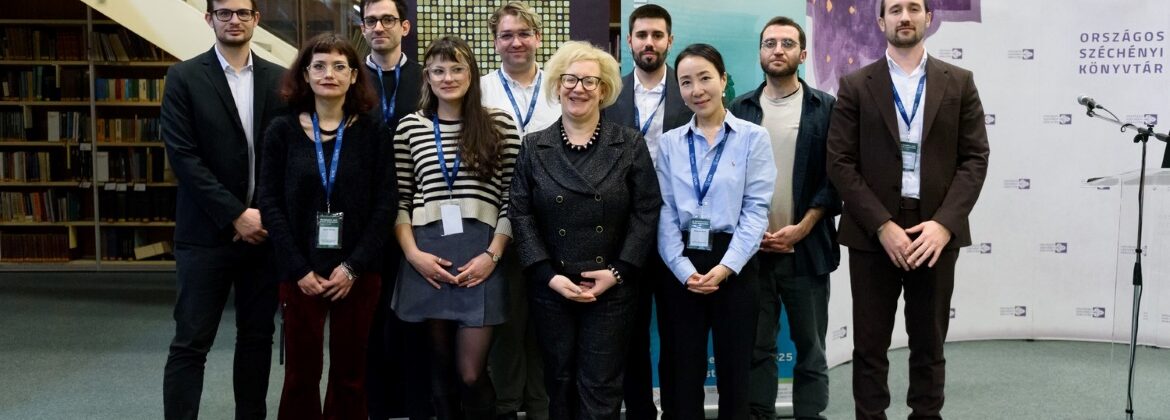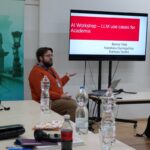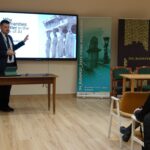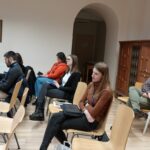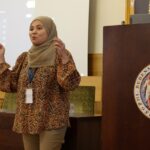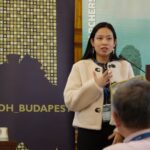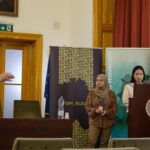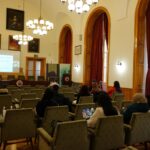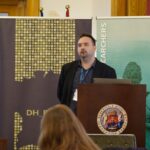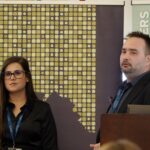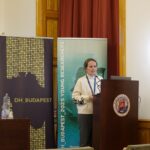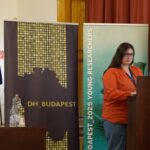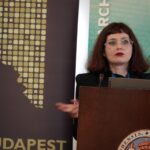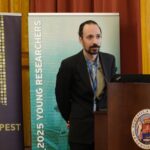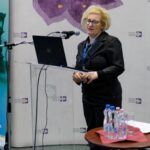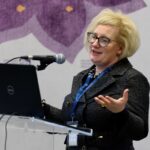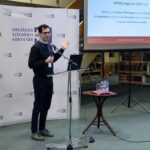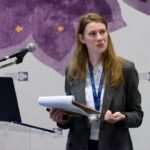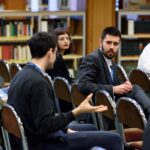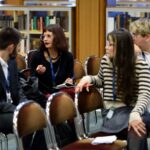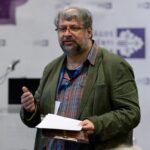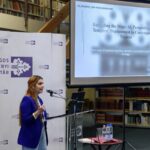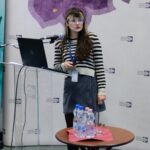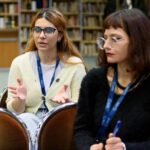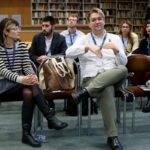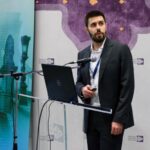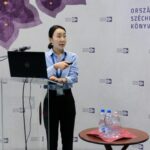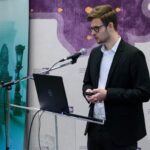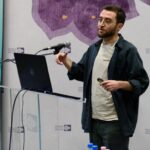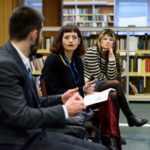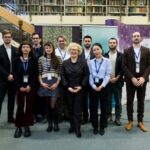The DH_Budapest_2025 – Young Researchers Conference was held between 19–21 November 2025, organized by the Department of Digital Humanities at Eötvös Loránd University (ELTE) — home of the National Laboratory for Digital Heritage (DH-LAB) — and the National Széchényi Library (NSZL). The three-day international conference, conducted in English, aimed to provide a professional platform for young researchers who examine the diverse and interconnected fields of artificial intelligence and digital humanities.
The event took place at two venues: the ELTE Faculty of Humanities campus and the NSZL. This dual location symbolized the joint role of academic research and national cultural heritage institutions in shaping digital humanities. With keynote lectures, thematic sessions, panel discussions, and workshops, the conference encouraged dialogue on the present and future of the humanities in the age of digital research tools.
Workshop and Shared Expertise: Research Practices in Focus on the Opening Day
The opening day, 19 November, centered on the practical sharing of knowledge. Participants took part in an interactive workshop that addressed methodological questions concerning the research use of AI tools. The program focused on the critical use of language models, support for source-based analysis, and the responsible scholarly application of generative models.
Education and Artificial Intelligence – New Pedagogical Spaces
The sessions on 20 November explored the educational role of artificial intelligence. Áron Badinszky, Rector’s Commissioner for AI Development at ELTE, delivered the keynote lecture, addressing future challenges in digital legislation and AI regulation, while emphasizing the need to balance ethical responsibility and technological innovation.
The first panel featured Bettina Trixler, Nor Amalina Rusli, and Meyly Kheng, who presented three distinct perspectives on the role of AI in autism pedagogy and teacher training — from opportunities for digital inclusion and ethical dilemmas to the social implications of educational innovation.
Technological competencies and pedagogical innovations were discussed by Boglárka Fanni Tóth and János Ujlaki, with topics ranging from interpreter training and the phenomenon of AI as an “invisible co-teacher” to creativity-enhancing approaches in language education.
The afternoon focused on practical applications: Aurica Singeorzan presented a historical database analysis; Anita Majorszki examined the pedagogical potential of AI-generated songs; and Rebeka Mezőfi analyzed the effectiveness of ChatGPT in language learning.
The day concluded with two further contributions: Szilvia Baráth introduced curriculum analysis based on topic modeling, and Tamás Süle highlighted the pedagogical relevance of terminology in informatics.
Artificial Intelligence in Culture, Literature, and Heritage
The program on 21 November was hosted at the National Széchényi Library. Judit Gerencsér, Deputy Director General of NSZL, delivered the keynote lecture on the evolving responsibilities of the library profession in the age of artificial intelligence, emphasizing the interdisciplinary relevance of digital literacy and professional accountability.
Research questions related to cultural heritage and AI were examined by Mihály Nagy and Ingrid Sfet. Their presentations ranged from methodological dilemmas of tool selection to multimodal religious pedagogy, raising the question: what are the limits of interpretation in machine learning?
Literary and theatrical perspectives were addressed by Hadeel Endewy and Dorottya Szemigán, covering topics such as AI-assisted interactive theatre, the limitations of algorithmic reading for marginalized literatures, and the Disztichon Alfa as a generative poetic model. Issues of digital preservation and archival methodology were discussed by Dario Baldini.
The interdisciplinary technological panel concluded the conference: Taulant Salihi examined the boundaries of algorithmic image analysis; Heejung Ryoh outlined an AI-based model of institutional resilience using Korean case studies; and Ábel Hajas presented advanced applications of laser scanning and digital reconstruction in the study of Hungarian castles.
Young Scholars, Shared Future
The diversity of the presentations demonstrated that digitalization and artificial intelligence are not merely tools but transformative forces that reshape modes of thinking — and within this process, the role of the humanities becomes increasingly visible. DH_Budapest_2025 provided not only a platform for young researchers but also a space for building a community that, through ongoing dialogue, can collaboratively shape the future relationship between artificial intelligence and the humanities.
The English-language abstract booklet is freely accessible on our website via this link.

